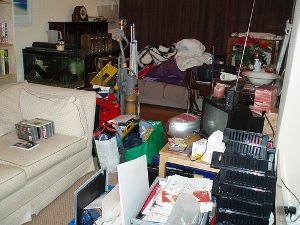Books for psychology students and curious minds
The Psychology of Hoarding
(Anonymous)
My mom likes to keep all old, unused, broken or spoilt things. My house is full of empty bottles, can, container, newspapers, flyers, old clothes, old furniture & electrical appliances, etc.
Please tell me how can I change her weird habit and get rid of all this stuff. I Have tried to explain to her many times but she is too stubborn to listen and never tries to understand my feelings.
Anybody have a solution to this problem? Thanks.
Comments for The Psychology of Hoarding
|
||
|
||
|
||
|
||

